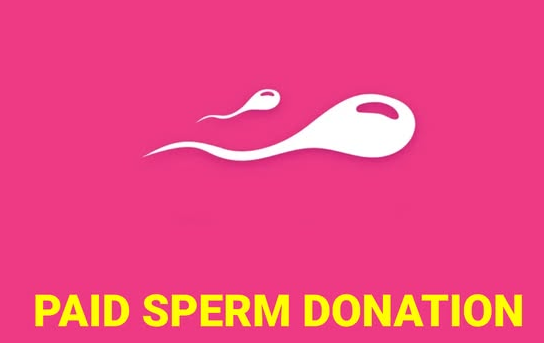Becoming a Paid Sperm Donor: Process, Compensation, and What to Expect
Sperm donation plays a vital role in helping individuals and couples achieve their dreams of parenthood. For those considering becoming a paid sperm donor, the process involves collaboration with sperm donor fertility clinics or fertility centers to ensure safe, ethical, and regulated practices. This article outlines how to donate sperm, the eligibility criteria, and the potential financial compensation involved.
How to Donate Sperm: Step-by-Step Guide
Initial ScreeningContact a reputable sperm fertility clinic or fertility center in your area (e.g., search for "sperm clinic near me" or "sperm donor fertility clinics"). Most clinics require donors to meet strict criteria:
1、Age 18–50 (varies by clinic).
2、Good physical and mental health.
3、No family history of genetic disorders.
4、Healthy sperm count and motility.
Medical and Genetic TestingDonors undergo comprehensive health screenings, including blood tests, genetic profiling, and semen analysis. These tests ensure the safety of recipients and offspring.
Legal and Ethical DocumentationSign consent forms outlining your rights, responsibilities, and anonymity agreements (if applicable). Laws vary by country, so clinics will guide you through local regulations.
Sperm Donation ProcessDonors provide semen samples at the clinic, typically 1–2 times per week over several months. Samples are frozen, tested for quality, and stored until matched with recipients.
Compensation for Sperm Donors
As a paid sperm donor, you can earn 50–150 per donation, depending on the clinic and location. Over a 6–12 month commitment, total compensation often ranges from 1,500to12,000. Factors influencing pay include:
Clinic policies: Reputable sperm donor fertility clinics offer structured payment plans.
Demand: Clinics in high-demand areas (e.g., urban centers like "sperm clinic Los Angeles") may pay more.
Donor qualifications: Exceptional genetic traits or academic achievements may increase compensation.
Choosing the Right Fertility Center
When searching for "sperm donor fertility clinics ", prioritize:
Accreditation: Ensure the clinic follows guidelines from organizations like the ASRM (American Society for Reproductive Medicine).
Transparency: Clear communication about compensation, health risks, and legal obligations.
Privacy: Strict confidentiality protocols to protect donor identity (if desired).
Frequently Asked Questions
Q: Is sperm donation safe?A: Yes, when conducted through accredited fertility centers, the process is medically supervised and low-risk.
Q: Can I donate anonymously?A: This depends on the clinic and local laws. Some allow anonymous donations, while others require identity disclosure.
